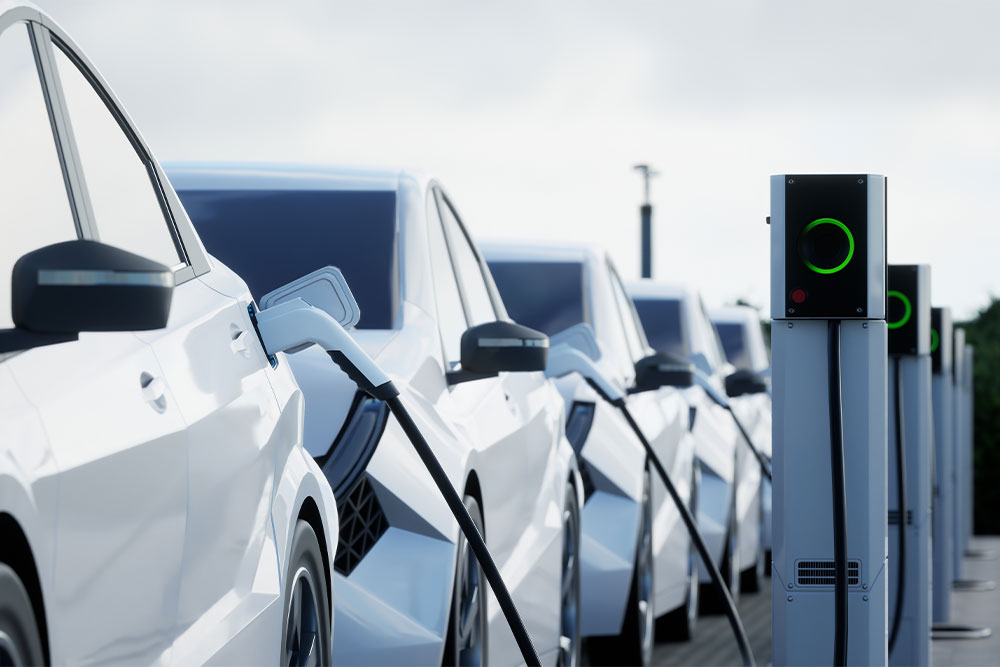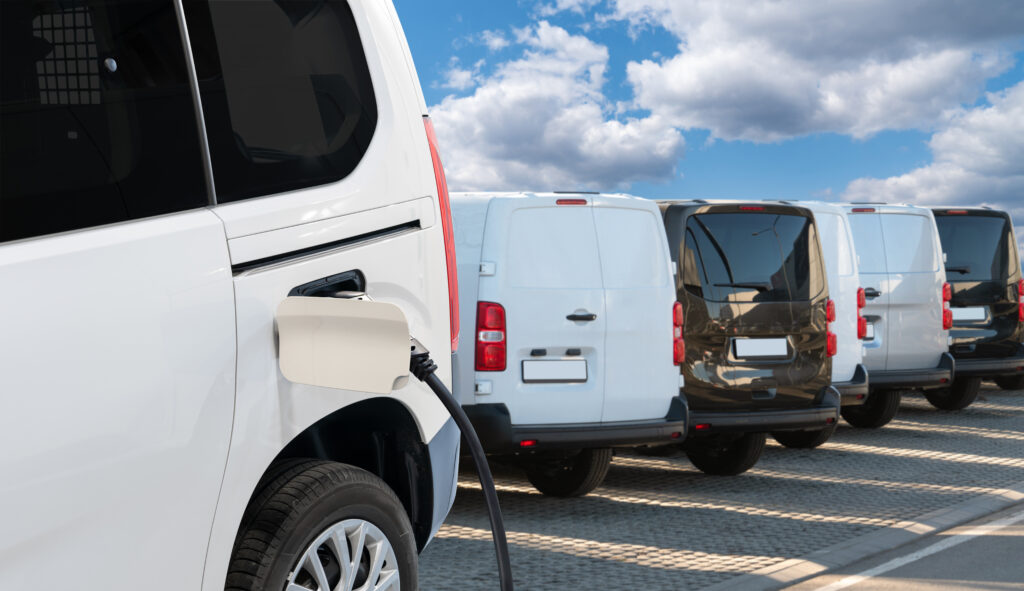S h a r e
How changes to the ZEV mandate can help on the decarbonisation journey


Posted by
Andy Bruce
April 2025
With media headlines stuffed full of tariffs and their impacts on the UK and the world economy, it is perhaps little wonder that the Prime Minister unveiled flexibilities to the Zero Emission Vehicle (ZEV) mandate as a backing to British business.
UK vehicle manufacturing certainly needs help faced with 25% tariffs for cars heading to America. JLR, in particular, sends 25% of its global car sales Stateside, so the impact there is certainly significant.
But what about the impact on businesses and fleet management?
The ZEV mandate is designed to transition the UK’s transport from combustion engined cars and vans to all electric vehicles by 2035. It forms part of the UK’s commitment to meet net zero greenhouse gas emissions by 2050, ending the UK’s contribution to Climate Change.
The changes to the ZEV mandate introduced by the Government are designed to give more flexibility to vehicle manufacturers to reach those targets.
Our business is centred around providing sustainable mobility solutions, so I’m pleased that the Government is sticking to its deadline of 2030 for the end of new petrol and diesel cars sales .
Beyond 2030, however, it has now allowed the continued sale of hybrid and plug-in hybrid models until 2035.
This seems to be a practical solution to the slower than expected take up of electric cars by consumers, perhaps dissuaded by a combination of higher retail prices and a fear of technology change.
There is little incentive for consumers to make the move to electric – unlike business drivers who can take advantage of extremely low levels of benefit in kind taxation for electric cars. And smaller steps through hybrids might be the method to attract them into fully electric cars.
Although, it should be noted that there is the ability for consumers to use salary sacrifice as a method to access electric cars and benefit from tax breaks – but that relies on their company providing this valuable benefit.
What about fleets, though?
We would encourage fleets to decarbonise by going fully electric where that is possible. But that isn’t always the case.
Plug-in hybrid vehicles can provide a necessary bridge, assuming drivers do keep the battery charged, until national infrastructure improves and more charging points become available across the UK.
Don’t hold back on full electrification
But a word of caution. Fleets should not delay the change to electric cars simply because the Government has introduced a degree of flex to the car makers. Other factors are at play, including the tax drag on plug-in hybrid cars.
For example, the Toyota Prius Plug-in Hybrid has a tax banding of 9% in the 2025/26 tax year, and rises one percent over the next two years to 11%. At this point it will be more than double the benefit in kind of a zero emission car (5%). But the tax position starts to get worse in 2028/29 when it accelerates to 18% while a fully electric car will be just 7%.
For hybrid vehicles, the tax position is far more punitive. The Nissan Qashqai e-Power hybrid , for example, is already at 29% for the 2025/26 tax year and remains that way until it rises again to 30% in the 2028/29 tax year.
In real terms, petrol-electric hybrids make little sense for company car drivers due to the high benefit in kind and the National Insurance payable by the employer on the benefit, whereas there is a case for plug-in hybrids over a compact timeframe.
Electrifying van fleets and the ZEV mandate

I think this is where the greater flexibility introduced will make the most significant impact. Van fleets have been problematic to electrify.
In many cases the available product is not suitable – or, at least to date has not met operator requirements – and there are issues over charging at home (often not possible) and availability of appropriate public charge points that are suitable for vans.
So I see the extension of new diesel and hybrid vans beyond 2030 to 2035 as a practical response to a very real conundrum.
Van fleets need more breathing space to accommodate the changed practicalities of running electric vans.
What I would counsel is complacency about van fleet decarbonisation. It needs to be considered now – putting the decision out into the long grass might feel comfortable presently, but fleets don’t want to be faced with a cliff edge decision in less than 10 years’ time.
So, overall, I welcome these changes to the ZEV mandate – they are a positive reaction to an immediate need and shows that the Government is willing to listen to the concerns of the industry.
But it should not stop the decarbonisation process for fleets – the gains for Environmental, Social and Governance (ESG) strategies are immeasurable.
You also might like…
If you liked this article then check out our posts about similar topics
What makes Fleet Alliance a winner in the SME fleet sector?
We all like an award, an additional trophy for the cabinet - the recognition is important and it’s always good to rece...
10 great cars to have on salary sacrifice 2025
Employers and employees are really catching on to salary sacrifice because you can drive a brand new electric car (EV) a...
Is an electric car on salary sacrifice too good to be true?
Short answer: no But you probably want something more reassuring than that So let’s go If you were to lease an e...
Changes to Vehicle Excise Duty and the Luxury Car Tax for electric cars
Electric car (EV) customers need to be aware of two important changes to Vehicle Excise Duty (VED) - more commonly known...
An opportunity for fleets to electrify vans
Cars have been the easy part of fleet decarbonisation Conducive benefit-in-kind taxation has persuaded company car drive...
Volvo ES90 Review: The Future of Electric Luxury
The electric revolution shows no sign of slowing, and Volvo is making its next decisive move with the all-new ES90 – a...
Make your fleet run like clockwork
Imagine a fleet that runs like clockwork—where leasing and sub-contractor costs are under control, and managing everyt...
How does the charging infrastructure work for electric vehicles?
If you’re new to electric vehicles - perhaps you’re preparing to get one as your new company car or ready to receive...
Ready to make the management of your fleet more efficient?
Request a call back
